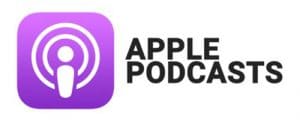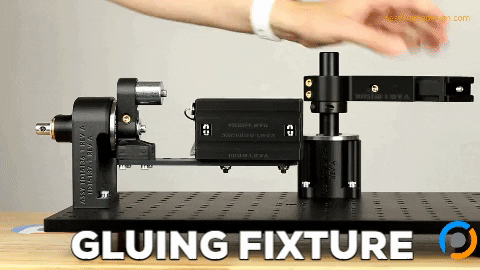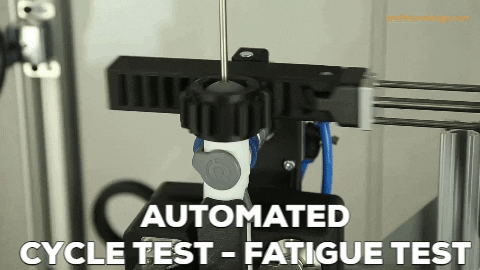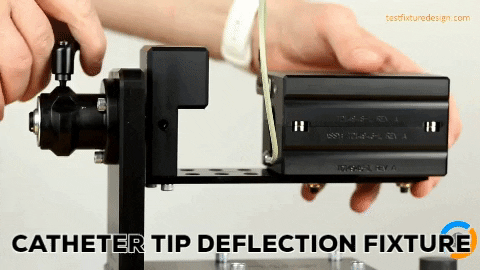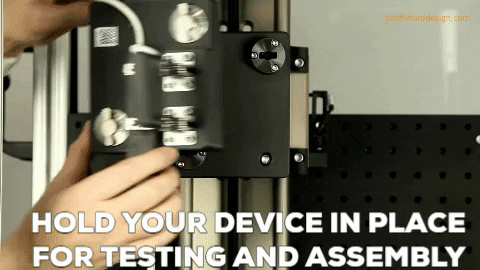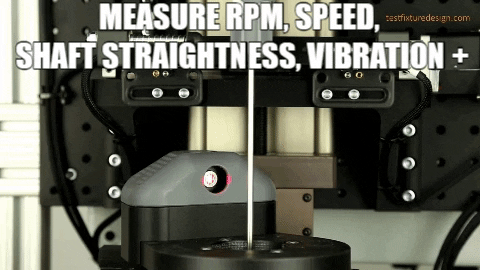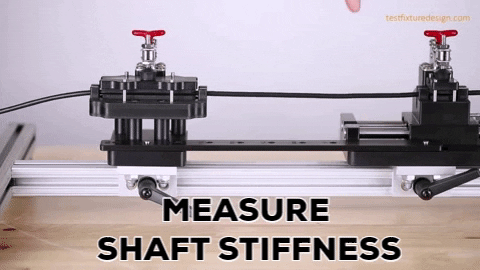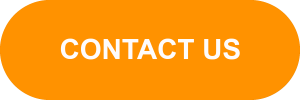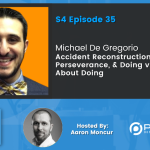S4E34 Carla Minett | Departmental Rotations, Ship Building, & Engineering Leadership

Who is Carla Minett?
Carla Minett has a Master’s degree in Mechanical Engineering and is the owner at Minett Consulting where she teaches engineering leadership through soft skills enhancement and practical experience.
EXPAND TO VIEW EPISODE TRANSCRIPTION
SUMMARY KEYWORDS
engineers, engineering, work, people, leadership, emotional intelligence, program, big, develop, helping, leaders, learn, carla, organizations, experience, grow, rotational, manager, pieces, team
SPEAKERS
Presenter, Aaron Moncur, Carla Minett
Presenter 00:00
Hi, everyone, we’ve set up this being an engineer podcast as an industry knowledge repository, if you will, we hope it’ll be a tool where engineers can learn about and connect with other companies, technologies, people, resources and opportunities. So make some connections and enjoy the show.
Carla Minett 00:18
If you can, you know that it’s actually impacting somebody else’s life, somebody else’s job, then you work you work a lot, you know that much harder because you know, you know what the result will be.
Aaron Moncur 00:41
Hello, and welcome to the Being an Engineer Podcast. Today we are speaking with Carla Minett who has a master’s degree in mechanical engineering, and is the owner at Minett consulting, where she teaches engineering leadership through soft skills enhancement and practical experience. Carla, welcome to the show.
Carla Minett 00:59
Hi, Aaron, thank you so much for having me. All right. So
Aaron Moncur 01:02
what made you decide to become an engineer?
Carla Minett 01:06
Well, honestly, I kind of stumble upon it. And I when I was in college, I was not sure about what direction I wanted to take. So I took just classes that I enjoyed, like physics and calculus, and you know, all the fun stuff. And then I realized that most of the students, my classmates happen to be engineers. So once I was there, it was more of a oh, I guess I can do that, too. Um, so I that I enrolled for engineering, and it was a great decision. I really enjoyed it.
Aaron Moncur 01:39
Nice. Were there things that you did growing up that? I don’t know, were conducive to engineering? Or, I don’t know, building things or taking things apart? Anything like that?
Carla Minett 01:50
Yes, yes. I think all of us kind of did something like that. When our childhood Yes, I very much enjoyed trying to, like, open up like little cars, like toy cars, you know, and the insight how that worked. Or even these take the pieces out and put them together with other pieces from different toys and use making something different. So yeah, I was always intrigued by it.
Aaron Moncur 02:11
You know, sometimes people ask me, What should I do? Younger engineers, or engineering students or even younger, you know, high school age kids asked me what, what should I do to if I want to become an engineer, like what are some of the things I should do to prepare? And I think one of the best things that people can do is just take stuff apart, right? take stuff apart and learn how it works, see what’s going on inside that thing. And hopefully put it back together too. And it still works after that. But yeah, but at least take stuff apart and learn how it works. There’s a lot that you can learn by doing that. But you were actually born in Peru and lived there until I think if I have this correct your late teens, at which point you emigrated to the US. Can you talk a little bit about just that whole process? And like what was the impetus for moving to the US and what were some of the challenges associated with it?
Carla Minett 03:04
Sure. So I was around 17 years old. At that age, I had already graduated from high school in Peru and I had actually qualified to start what I guess you would call the college or university down there. And then my parents decided to move to the US. And because I was only 17, the whole family came with them. Me and my brothers, we all came together. In Peru, you’re not a of adult age until you’re 21. So interesting. It was a parent’s this family decision. And and I think that we were so close, you know, as a family that we would have stuck together anyway. Yeah. So the first time we moved to Connecticut, and then we were there for I was there for maybe two years, I decided to go to high school for a year and a half. So I did high school again. So I went in as a junior halfway through, and then I did the senior year as well. And the purpose of that was to get immersed, and familiarized with the English language and the culture and all sorts of our history. So that was the idea. It was kind of a, you know, just learn by doing because I did not take English lessons until it was maybe a month or two before I moved to
Aaron Moncur 04:26
the US procrastinate. Oh,
Carla Minett 04:29
yeah, yes. So yeah, when I came here, I didn’t speak much English. So it was a fun and interesting, interesting experience for sure. And cultural cultural shock as well. So I remember this a funny story, when I met some friends and she introduced me to her boyfriend and some other friends. And I went ahead and gave him a kiss on the cheek. That is culturally how we meet people how we greet people and she was just like, so I don’t know, maybe she was uncomfortable. I don’t know what it was. But she got a little nervous. And I found that it was just yeah, it’s just called, you know, getting adjusted to a new culture and the new language and new customs was the phony transition there. And then a couple years later, I found out about this program for engineering, our Old Dominion University. i By that time, I was already kind of thinking that I’m maybe interested in it. And I moved to Virginia. And that’s where, where I went to community college. And then I went to Old Dominion University. But before I did that, I was interested in going for a Fashion Design and Merchandising somewhere in Connecticut. So like I mentioned before, in the beginning, I wasn’t really sure which direction I wanted to go. But then once I decided that I wanted to explore the engineering path, I moved down here to Virginia to continue my education.
Aaron Moncur 05:54
Wonderful, very cool. Thank you for sharing that. It’s funny about the the kiss on the cheek thing. I grew up in Hawaii. And it’s the same thing there you greet people with like a kiss on the cheek. I mean, maybe not guys with guys, but like, men and women, they’ll greet each other with a kiss on the cheek. But that’s not not so much the case here. And on the continental US, is it?
Carla Minett 06:15
No, no, I learned that the hard way.
Aaron Moncur 06:19
That’s funny. Tell us a little bit about the beginning of your career, what we’ll get into what you’re doing right now, which is running your own consultancy. But tell us a little bit about your career before Minett consulting?
Carla Minett 06:34
Yes, so I spent some time with the City of Norfolk with an amazing manager had an internship there. And then I also spent some time in the H back industry with you know, designing H vac systems. And then I spent most of my career in the shipbuilding industry, in which I actually got to explore a wide variety of organizations, because the shipyard is one of the biggest employers in this area. So they have in house to have facilities engineering, they have everything every department, you know, that they need. So I got to explore this different organizations within the shipyard kind of like micro organizations, if you will, they were very differently different functionally. And that was really cool. And honestly, it wasn’t until I got to explore all those different organizations and get to go around in the company that the transformation really began as far as being able to expand my skills, my own skills, and, and just realizing that there is so much more that can happen. And then when we actually meet other leaders, other senior leaders in the companies, because I feel like sometimes we are putting one department and if we don’t ever leave that department, we think that the leadership looks the way we’re seeing it right there. But you know, I came to realize that that wasn’t the case that there was so much more out there. And so, yeah, I mean, you could ask me anything about that. That’s a very exciting time to me all my career. Yeah.
Aaron Moncur 08:13
You know, I’ve never talked with anyone who was in the shipbuilding industry. That’s super interesting. This is going to be maybe a little bit of a vague question. So hopefully, you can you can turn this into something. And if not, that’s fine, too. Is there anything about the shipbuilding industry, especially within the context of engineering that that would be just kind of an interesting fun fact, or, or something that maybe those of us outside of that industry have just never even considered? Because we’ve never been exposed to but I don’t know anything like that, that comes to mind that it might be interesting to share.
Carla Minett 08:47
Oh, there’s just so much so much. Yeah, yeah. I mean, from this aspects of building a ship, you know, everything that goes into it. Yeah, and all the components are going to it. But I’ll tell you more generally, as far as being working NFS in a shipyard, maybe that was really cool to me. I weren’t where you would see the ships themselves, you will see the big modules. And so there there weren’t there was a lot of time when I wasn’t the shipper when I worked on the ship er, and I just felt like I was in this big playground and he was the coolest playground in the world. I mean, nobody else has toys like this. Yeah, yeah. So that was really neat. Being able to see all that and people working at Tim,
Aaron Moncur 09:35
probably similar in a way to working at like, the Boeing plant, right where they’re giant airplanes in Yes. hangars. Yeah, yes. That’s probably very much like that big cool toys. All right. I went through the Boeing tour up in in Washington. That was really cool. Especially as an engineer. Yeah. Well, at a certain point in your career, you So I guess you saw a need for engineering leadership training and decided that that’s what you were going to pursue. Tell us a little bit about how that happened.
Carla Minett 10:09
Sure, yeah. So like I mentioned earlier, when I joined a rotational program in the shipyard, I got to experience different areas of the company. And it broadened my perspective. And it exposed me to a wide array of leadership styles and inspiring leaders. So that was a big key component in Microsoft, as a professional in the engineering industry. And I felt like when my co workers that I quote unquote, left behind, you know, that stayed in that department, like, I felt that they couldn’t even imagine all that that was out there, like until you go out there, you don’t know what’s out there. But being able to see that there were more ways to lead people more ways to work, and just, it was very eye opening for me. And it was, it really helped me grow individually as well. So in addition to the rotational program, I also was a part of a Emerging Leaders Program. And one of the exercises that we did there that I always remember is they said, think back, you know, think of a few leaders that you have worked with, and come up, you know, draw on the board, five top traits that you that helped you, you know, grow and develop, or that you really enjoyed by that person. And when I did that, that was my realization, that I have met some very inspiring people. And once I made that little list, it was kind of like my guiding light, you know, this is how I want to be, that’s the kind of person that’s the kind of leader I want to be. And it was just really eye opening, I would have never experienced and would have never known that had, I stayed in the same department my entire career. And I know that there were a lot of people in like, maybe senior engineers, that that had been the case, you know, and I guess maybe that’s how it used to be like people just, you know, you picked your where you worked, and that’s where you stayed your whole career. So it was his eye opening for me, for sure. So anyway, once I saw that difference that he made, to go from one leadership to another to another one, throughout, throughout these organizations, I was able to see, you know, to see in myself and my peers, the transformation that he had in us, and how you know, we grew and how we, our performance increased our ability to you know, collaborate, increase, you know, just a series of skills increased, once we were, we’re under this different type of leadership that perhaps worked a little bit better than others. So that’s when I saw the need for leadership, and the engineering industry. And in addition to the fact that just as engineers, you probably seen the same thing as when you are, if anyone as an engineer is under the management, you know, that may not want to this person may not want to be a manager, but because he was highly skilled, technical, you know, maybe the great, you know, technical engineer in the department was asked to be a manager, and then this person does not desire to be a manager, this person just wants to do their drawings, or whatever that may be. So I have seen how the team struggles, because the team, you know, needs a leader, and when that leader it is, you know, has this tendency to want to, to just be left alone, for lack of better words, then it’s, it’s challenging, and, and then you can see that in employee, you know, turnover, you see that and, you know, it’s very costly to engineering companies. So hence, that’s why I’m here.
Aaron Moncur 14:06
Yeah. So following that experience, you develop this program called engineers to leaders and use that to teach leadership to the organizations that that you work with, which are generally engineering companies. Can you give us maybe an overview of the program and and if you’re able to one or two, very specific, even actionable areas of the program that folks engineers who are listening to this podcast today can can go out and actually do those things?
Carla Minett 14:39
Sure. Yeah. I think that the most actionable piece of the engineers Leaders program would be the the EQ focus the emotional intelligence focus. And the reason it’s such an important piece of these this program is because I feel like engineers like many other professionals, the their training in University is mostly technical in order, you don’t get leadership training in an engineering profession. So unless it is intentionally done, and there’s only offered to you. So I know that engineers too, in order to transition to leadership, there has to be that transition period where they are stimulated, they, you know, they can grow, and they can develop, and they can learn to be able to effectively turn into a leader, I think that there’s a lot of engineers that could, you know, they do their best by until they are offered these opportunities, it really is, it’s a little bit of a struggle from what I’ve seen. So the engineers, to me, this program is based on these engineers to this model. And the model has four components, four pillars, and they are experiential, immersive, rotational, and collaborative. So these are the four components that I feel that are really key in, in accelerating the development of an engineer, in this case, I’m sure it works for many other professors as well. But in this case, it is made for engineers, because as an engineer, myself, and as a person who’s gone through this transformation, as well, it is who I can relate to and who I can understand. So like I said, the components are experiential, experiential is essentially you will not have more experience unless you get experience. So you need to be given the opportunity to get this this wide array of experiences, to be able to to increase your resume. And a lot of times, you don’t need to spend, you know, 20 years to have learned how experience for different things, sometimes you can do that in a shorter period of time. And that’s where the rotational aspect comes into play. So that’s accelerating the development because we’re putting people through different experiences. But it is, it is a thought out program, in a sense that if you were to just send people off and trying to rush this through, without thinking of all the pieces that need to come together, it’s not likely to succeed is more likely to use put a lot of pressure on the engineer. So there’s different pieces that I that I think about when I think about the engineers to do this model. And then we were talking about the immersive part of it. That goes back to me learning English by immersion, is really the best way to learn in my opinion, it is the way that things really stick in your head the best. And it also I feel like it increases the the sense of accountability and ownership for your job, because you’re not just there, you know, I’m just not doing a project for somebody else that belongs to somebody else, you know, you’ve actually taken on your own project as your baby, you’re responsible for it, you’re immersed in it like this, you’re not an outsider looking at your inside. So that’s the immersive pillar and the collaborative pillar. It has to do with just trying to break those silos that happened very commonly in engineering, where people may get comfortable, you know, or not so much comfortable, but so focused on making sure that their components succeeds, that oftentimes we forget to think about how important it is to make sure that this is working together as a system and is really doing what the company needs the company know what’s best for the company as a whole. So those are the four components. And you asked me, What is something that engineers could probably do that were pretty actionable. I would say that, like I mentioned before, the EQ, the emotional intelligence, and I’ll tell you why. I don’t know a lot of people misinterpret emotional intelligence and the thing it’s about feelings. However, emotional intelligence is about using emotional information effectively, to help you achieve your goals. And the truth is, is that we’re using emotional information, whether we want to or not. Now, the thing is, if we are aware that we’re doing it and we know how to do it effectively, then we’re going to achieve our goals. But if we’re not aware of it, it still may be actually holding us back from getting to where we want to get.
Aaron Moncur 19:09
Yeah, so So if I’m an engineer listening to this, and I, I hear you talking about EQ emotional intelligence, and I think to myself, if I’m aware enough even to realize you know what, I think that’s an area that I should improve in what’s what’s something that I can do you know, today to take action and improve my emotional intelligence.
Carla Minett 19:30
I think the first step is always assess as an engineer in hell always assess take an assessment, there is the one that I use is the EQ 2.0 EQI 2.0. And the reason that I use this there are other models. The reason I like this model is because it’s very actionable. So just to give you an example, there are five areas that this model breaks your emotional intelligence score into is the first one is self perception. Self, the second one is self expression. The third On his interpersonal, the fourth one is decision making. And the fifth one is stress management. So, it is very easy once you get your emotional intelligence score is very easy to pinpoint the areas that you feel that you realize that you need to work on, and go into it and know exactly what what type of work you need to do and what kind of outcome you’re looking for. For example, with the stress management, there is three pieces underneath it, which is flexibility, stress, tolerance, optimism, decision making, for it will be problem solving and reality testing, impulse control. So you can zoom in into any of those little areas, and you are guided by the scores. So that is, in order to do something right away, I would say is take this assessment, it only takes about 15 minutes maybe. And then you will have a breakdown of all your your emotional intelligence skills, and it’ll be nicely grouped into components that will help you release them into you know, what areas you would like to develop.
Aaron Moncur 21:02
And that’s really cool. I’m actually going to do that myself. I’m interested to see what would my EQ score is? Is this something that anyone can just google and find and take themselves? Or is this something that you do like through a facilitator such as yourself?
Carla Minett 21:17
Yeah, I mean, I, yes, you do it through a facilitator. And if you Google it, you just find another another person that’s facilitating it. Got it. Okay. And like I mentioned, there’s, there are different models, that model that I use this this one, the one that has the five components?
Aaron Moncur 21:31
Cool, it sounds like a very useful tool. Yeah. Let me take a very quick break here and share with the listeners that Team pipeline.us is where you can learn more about how we help medical device and other product engineering or manufacturing teams, develop turnkey equipment, custom fixtures and automated machines to characterize, inspect, assemble, manufacture, and perform verification testing on your devices. Today, we have the pleasure of speaking with Carla Minett. And, Carla, what what are a few of the most common barriers that that you see engineers stumbling over or maybe the organizations that employ engineers stumbling over as they strive to develop leadership within their organizations,
Carla Minett 22:18
I would think that some of the biggest barriers would be to see the need for to be able to quantify the leadership development. Because engineers, we’re very practical people, you know, we are trying to solve problems and solve problems that we can put a number to that we can touch, maybe even and see. So and, and leadership development, the need for leadership development is something that you’ve experienced more so. So if you had that self awareness, to be able to notice that the challenges that you’re having are related to to the lack of these soft skills, then, then that’s when you’re able to put enough value in it and decide that this is something that worth investing in.
Aaron Moncur 23:05
Are there any concrete signs that engineering organizations should be looking out for that? When we see these signs, we know, oh, this is an a leadership problem that that we need to address?
Carla Minett 23:19
Absolutely. So employee turnover, for sure. That’s the biggest one. You know, they say this, there’s this, this statistic, and I can’t remember the number, but they say, you know, people don’t leave companies, they leave their managers, or they don’t need jobs, they leave their managers. I kind of have my own my own opinion on that one. Because I feel like the companies are the ones that put the manager in that position without any proper training. Good point, right. So it is yes, I feel like it is our responsibility to to help these these new managers broaden their perspectives, and to help them see that they the need for for leadership development and help them experience the benefits of leadership development for them.
Aaron Moncur 24:09
Do you recall any instances when you were an engineer working as an engineer yourself, of course, you’re still an engineer. But you remember any specific situations where something happened? And you you realized you learned, oh, this is a leadership skill. This is something I need to remember, this might be something I want to teach others in the future. Any stories like that, that you remember happening to you when you were working as an engineer that now you use to teach engineering organizations how to develop leaders?
Carla Minett 24:46
Yeah, so I’m trying to think there to so many experiences. I think for me personally, it will be the development of empathy. I’m not an an empathetic person, but I know that I can leverage that skill better in engineering and in leadership. The reason being is because like I said, you know, at least for me, as an engineer, I was very results oriented, you know, practical person, we are here to do our job, and we’re here to accomplish this task by this deadline. But by as I grew as a professional, and, you know, in my positions, I realized that we cannot forget that we’re humans, right? We if we were working with robots, then yes, perhaps just, you know, we aren’t gonna just focus on getting things done. I think that it is part of the business that hires people and humans, is taking into account for that for that human factor, and allowing for our skills to develop, to be able to manage those human interactions. And that’s when we go back to the EQ portion of it. So I feel like had I known about these emotional intelligence assessment and development, before I went on and rapidly went through these different organizations and try to, you know, turn around the projects in short periods of time, I feel like had I have that, that that awareness of my emotional intelligence, and what areas I could improved, I would have saved it would have saved me a lot of pain and pain in a way that it’s just, you either learn by struggling, you know, or you learn by maybe being presented to a different options or different thoughts. Yeah, forehand. So
Aaron Moncur 26:36
yeah, there’s, there’s an individual on our team here who really thrives on being recognized, not not in like, a prideful or inappropriate way at all. He just, that’s very fulfilling to him to, to be recognized. And he was self aware enough to share that with me, at some point in the past. And so, over the years, I’ve looked for opportunities to recognize him in front of the group. And it’s so amazing when in he’s always doing wonderful things. So it’s not, it’s not terribly hard, right. But when I am aware enough to remember that, and then, in front of the rest of the team, say, Oh, hey, so and so solve this problem, or came up with this really great idea. And this is how it helped the project. And I just see his his face light up, right, because he’s so pleased that that his efforts have been recognized. Yeah. So just things like that I’ve seen being being aware of what’s meaningful to people on your team, and then taking action on those items. Yes, yes, definitely. Well, you are an engineer yourself. And apparently, you’re also married to an engineer, which must be fun. What is what’s something that you’ve learned about the mindset of an engineer that you’ve been able to incorporate into your consulting practice?
Carla Minett 28:03
Something about the mindset of an engineer, I think that they are, we are just, we can be so different. I think that even within the term, the professional of the engineers, we could have aerospace engineers, mechanical engineers, electrical engineers, which my husband is electrical engineer, you can have civil engineer, you know, biomedical engineering. So I think we all have a subtle difference as well, when it comes to our mindsets. And I think it’s really depends on each individual I have met engineers are very open minded, whereas men engineers are much more close minded. So I think it really depends on who you come across. That was that, that may have been more close minded. I would like to say that it may be perhaps because they weren’t exposed to more variety, more diversity. So that they, they can see that there is more to what they’re doing than just what they’re exposed to. For those who are more open minded, they are typically the ones that are a little bit more extroverted. And typically more risk prone, like, you know, they’re more willing to take risk and put themselves out there. And yeah, so yeah, I’ve seen both.
Aaron Moncur 29:24
Sure. Yeah, that’s fair. How about you talked about this a little before, where maybe there’s an engineer who’s very gifted tactically, and that engineer gets promoted to be a manager. Do you think that should always be the goal for engineers? Is that just the natural progression, get get very, really good tactically, and then move into leadership? Or are there other paths that engineers should consider outside of just going into leadership?
Carla Minett 29:51
Yeah, that’s a very good question. So I don’t think that all engineers should go into the the managerial old route. And actually when I was in, you know, working as an engineer, one of my mentorship meetings with my mentor was to discuss my career path. And the two paths were were presented to me as saying, like, you know, you can grow within the engineering profession, you can continue to be an engineer, you know, all the way to be in a senior engineer, or you can go the leadership path, and you know, and go on to be in a team lead, and then a manager, and then so on. So, while I don’t think that every engineer should go the managerial path, I think that the the skills, the soft skills required to be an effective leader are extremely beneficial, and I think even essential for engineers to be able to do their work effectively. Because we don’t, we don’t work in silos, you know, we don’t work in bubbles, we really need to be able to, to work and collaborate with others. That’s a leadership skill, you know, we really be able to lead ourselves and lead our projects and lead those people who are helping us with our own project. So whether we are we go down the managerial route, or we go, we continue to develop as engineers in the technical round, I think that we need to understand as engineers that we need to be able to work with others, and we need to develop our own self awareness. Because if we don’t know, where we stand, we don’t know what you want. We don’t understand, you know, what we even are pursuing? And how do we communicate that to others effectively? How do you know how do we work well as a team? So I think that, like I said, Well, I Well, I don’t think that every engineer should become a, you know, to go and be a manager, if they want to, of course, they can develop those skills, by I do think that all engineers should, should be presented to the up with the opportunity to develop those those soft skills. Yeah,
Aaron Moncur 32:03
I think I agree with that. Not. And this is true for not just engineers, but probably any profession, going into leadership or management shouldn’t necessarily be the default path. I know, engineers who are really incredibly good engineers, far better engineers than I will ever, ever be. And they’re probably more valuable in that kind of subject matter expert role, then they would be in in a leadership role. So it’s different for everyone. And I don’t think that engineers should necessarily just go to the default of oh, I need to move into leadership.
Carla Minett 32:39
Right. Yeah. And I think that that would may also be maybe the lack of having that conversation, having that conversation where it is said, you know, there’s more than one path if you because everybody, you know, craves to, to become more, you know, to reach the next level, and just having that conversation as to, you know, you can go down the engineering path as well. I think that’s important.
Aaron Moncur 33:02
Yeah. Yeah. So to all of you listeners right now, you don’t have to go into leadership. The world needs generals, of course, but we also need really good soldiers. Absolutely. What can you think of? In your opinion? What’s one of the best pieces of advice that you’ve given to to one of your clients? And how did they help that organization?
Carla Minett 33:23
Yeah, so I think that when, when we look at the organization, and we want to implement change, because even establishing alias program is changed, it does impact not only the people that join the program, but also those around them, especially when you’re looking at the the use of the engineers to do this model and involves rotations. And there’s a reason for that, because we want to, we want to amplify the impact of this program, we don’t want to just, you know, focus on one person helping this one individual loan, we’re looking at more of a systematic approach. So I think that even when implementing a program, it is a change. So there has to be changed management. And the biggest piece I would say is, not everything has to be done at once. So the best thing that you can do, really, sometimes you have to have a phased approach, which you know, you can have, okay, you know, for phase one, we’re going to do maybe a smaller group, a selective group of people that you already know, that are more willing to try different things. And we’re willing to keep an open mind, even if things maybe don’t work out the way you want, you know, you thought they will. So it’s nice to always try out a new program or the implementation of a new software, perhaps with a smaller group of individuals are willing to, to keep in positive mind and work with you to make the tweaks necessary and r&r your processes before taking it out to to the bigger quantities.
Aaron Moncur 34:51
Yeah. Well, just a couple more questions here. And then I think we’ll we’ll wrap things up specifically within the context of your role as an engineer What is one thing that frustrates you? And also one thing that brings you joy?
Carla Minett 35:06
I had a hard time thinking about something that frustrates me as an engineer, because I am that open minded optimistic engineers. I’m just thinking,
Aaron Moncur 35:16
maybe close minded, pessimistic. Engineers is what frustrates you. Maybe that’s,
Carla Minett 35:20
maybe that’s it? Maybe, maybe so. So I found that I, whenever I encounter a challenge as an engineer, or a roadblock, I will find a way, you know, find another way, you know, go around and try to find somebody that can help me somebody was willing to help me. But yes, what if I find people that are maybe very short, or very close minded, or even sometimes a little angry? That could really shut down, you know, people, and I try to remind myself, it’s not about me. If they are this way, they are this way, not because of me. But so that could be frustrating in the sense that I’m trying to do my job and trying to get to an answer, I’m trying to, you know, move forward. And maybe they are subject matter experts that don’t make it very easy to to facilitate that discussion. It’s a little bit hard. That could be a little frustrating. But your second question was, What is something that brings me joy as an engineer? Well, I’ll tell you, I say shipbuilder and being in the shipbuilding industry, and having the opportunity to, to walk the yard and interact and help and actually see the people that I’m helping. That brought me joy, knowing that I was helping somebody, you know, one of our trades, you know, do their job and get to do their job, you know, and get it to a completion point. And that they get to go home, you know, I feel satisfied with their job that they actually get to do. That was very fulfilling to me. So that’s, that’s probably what brought me the most joy is knowing that, that I was helping somebody in real life and that I got to see them.
Aaron Moncur 37:09
That’s, that’s great. And I think that sentiment is shared by every engineer on the planet. I’ve, when I got married my my wife, I don’t think she really knew any engineers. And so she kind of before we got married, when we’re getting to know each other should say, What do you even do, right? What does an engineer and I told her engineers are professional problem solvers. That was my description. And that kind of clicked for her. And she’s like, Oh, okay, I get it, I get it. And so I’ve always had this, this belief that engineers are problem solvers. But someone I interviewed a few weeks ago said something that was really insightful and added to that definition. So engineers are certainly problem solvers. And what this person said, I can’t remember who it was, I’d love to give them credit, but I can’t remember who it was anyway, they said, I love solving problems that helped solve other people’s problems. And I thought that was a great qualifier, right, because we love to solve problems, but we really love it. When the problem was solved, we see the direct impact that has on helping someone else. And just as, as people in general, I think we all like to help each other. But as engineers, we’re specially trained in these technical arts, right? When we can use that technical skill to solve someone else’s problem. And our solution helps them do something better, be happier, be more productive, whatever it is, it’s hugely fulfilling for us.
Carla Minett 38:37
Yeah, definitely. And I think that it has a big impact in our level of engagement as well. Because if you can, you know that it’s actually impacting somebody else’s life, somebody else’s job, then you work, you work a lot, you know, that much harder, because, you know, you know what the result will be. But I feel like when a lot of engineers, maybe stay in the office, and they don’t get to see the end result or the people that you know, they end up impacting, that’s when maybe it just may even become, you know, monotone. You know, it’s disappointing. I feel like my engagement increased by a lot once. I’d like to see everything downstream.
Aaron Moncur 39:18
That’s a great point. Great point, helping engineers see the impact the effect that their work has on other people, really drives engagement. Okay, well, Carla, what what a great conversation this has been thank you again for taking some time and spending it with me today. How can people get in touch with you?
Carla Minett 39:34
Sure. No, thank you, Aaron. I’m really glad that you got to chat today. I really appreciate it. I had a good time. Yes, I am. I try to stay pretty active on LinkedIn. So if anyone wants to reach out on LinkedIn, that’s great. If not, I also have my website, Minettconsulting.com So I have a little contact form and you know, anyone can just shoot me a message and I’ll be happy to respond.
Aaron Moncur 39:57
Great and that’s mi n e t t comm resulting.com Right? Yes, I will put a link to that in the show notes as well. Right. Great. Okay. Well, thank you again, Carla. Sure. Appreciate it.
Carla Minett 40:09
Very welcome.
Aaron Moncur 40:14
I’m Aaron Moncur, founder of pipeline design and engineering. If you liked what you heard today, please share the episode. To learn how your team can leverage our team’s expertise developing turnkey equipment, custom fixtures and automated machines and with product design, visit us at Teampipeline.us. Thanks for listening.
About Being An Engineer
The Being An Engineer podcast is a repository for industry knowledge and a tool through which engineers learn about and connect with relevant companies, technologies, people resources, and opportunities. We feature successful mechanical engineers and interview engineers who are passionate about their work and who made a great impact on the engineering community.
The Being An Engineer podcast is brought to you by Pipeline Design & Engineering. Pipeline partners with medical & other device engineering teams who need turnkey equipment such as cycle test machines, custom test fixtures, automation equipment, assembly jigs, inspection stations and more. You can find us on the web at www.teampipeline.us

